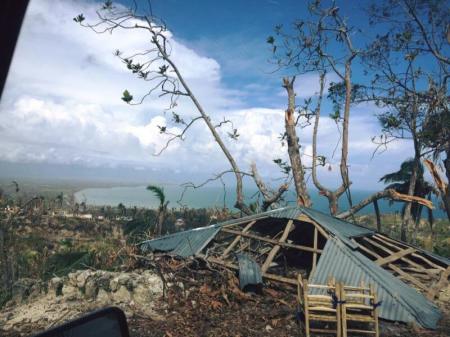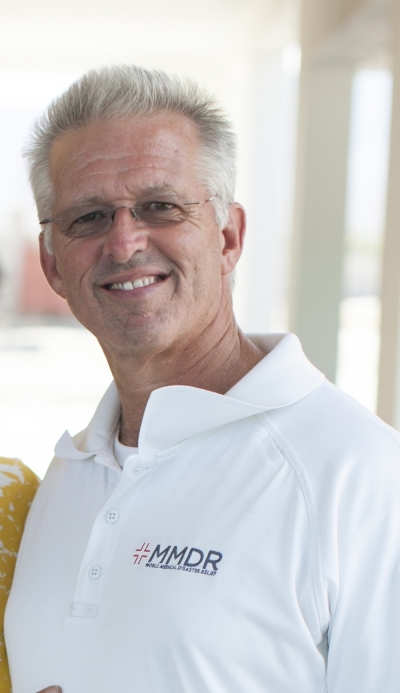In Our Election Craziness, Don't Forget Haiti

It's been only a month, but seems like we've already forgotten the destruction Hurricane Matthew left in its wake when it slammed into the western tip of Haiti in the early hours on Oct. 4, 2016. The category four hurricane with sustained winds of 140 mph dumped 40 inches of rain on the mountainsides of the Tiburon peninsula. In the resulting mudslides and blowing debris, 546 Haitians lost their lives and some 438 were injured.
This tenuous country, still reeling from the 2010 earthquake that devastated the nation, delayed presidential elections because of the hurricane and asked the world for help. An enormous effort by primarily Christian humanitarian aid groups and the UN has brought food, medical supplies and building material to this hard-hit area. But as the news cycle moves on to the upcoming U.S. presidential election, Haiti is forgotten.

Though the world has moved on, Haitians are still reeling from the disaster. The UN estimates that 806,000 people are at an extreme level of food insecurity in this area, 175,000 people are living under tarps and cholera is beginning to spread. When you put all of these variables together, further devastation and despair become inevitable.
Unlike in developed countries, people living in the path of a hurricane in the developing world can't flee from the onslaught of destruction brought by these storms. Few of the people caught in the storm had sufficient transportation to leave the area and many hadn't even heard that the hurricane was making landfall near them. Also, unlike disasters in the developing world, as time passes, the misery deepens in countries like Haiti. As foreign aid falls off with the diminished media coverage, food insecurity worsens, then worsens again as the next cycle of farm production fails; disease spreads through villages as clean drinking water becomes scarce and sewage fills the rivers. Things don't get better with the passage of time — they go from bad to worse.
We've been trying to alleviate some of the suffering with humanitarian aid deliveries to the hardest-hit areas. With our first food and medical supplies run, we realized the extent of the devastation. Even getting there was difficult — our old box truck groaned under the excessive weight as we forded the river that had washed out what was left of the road to Port Salut. The 7 hour drive from our base in Thomazeau had been arduous but we knew the trip through the hurricane devastated landscape was worth the discomfort. With each passing mile more downed trees littered the land, more farm-land was flooded and more people were homeless.
As we pulled into the small town square surrounding the Catholic Church, we began to understand the human toll of the hurricane. While we distributed the rice and beans to the hungry and treated the injuries of the wounded, their stories of terror and loss began to overflow like their hurricane ravaged homes.
Jean Luc wept as he told of his surprise as the storm made landfall right over the top of his house. Without early warning systems, Jean Luc and the people of his village had no idea that Hurricane Matthew was barreling down on their rural Haitian homes. With terrible ferocity, the winds tore his entire life from him — his family, his house and his farm. Now, with nothing left but the clothes on his back, he vowed to relocate somewhere inland where hurricanes can't find him. This seems the only logical solution for Haitians who don't have things like FEMA or groups like the Southern Baptist Men to help them take stock and rebuild.
As you enter the Thanksgiving holiday season, be thankful for your family gathered around the full tables they enjoy; but please remember the hundreds of thousands of Haitians who are slowly starving as they huddle under frayed tarps in the mountains of the Tiburon peninsula. There are still many charities such as ours continuing to work down in Haiti through whom you can give to help these forgotten but resilient people move forward, once again, from unimaginable disaster.





















